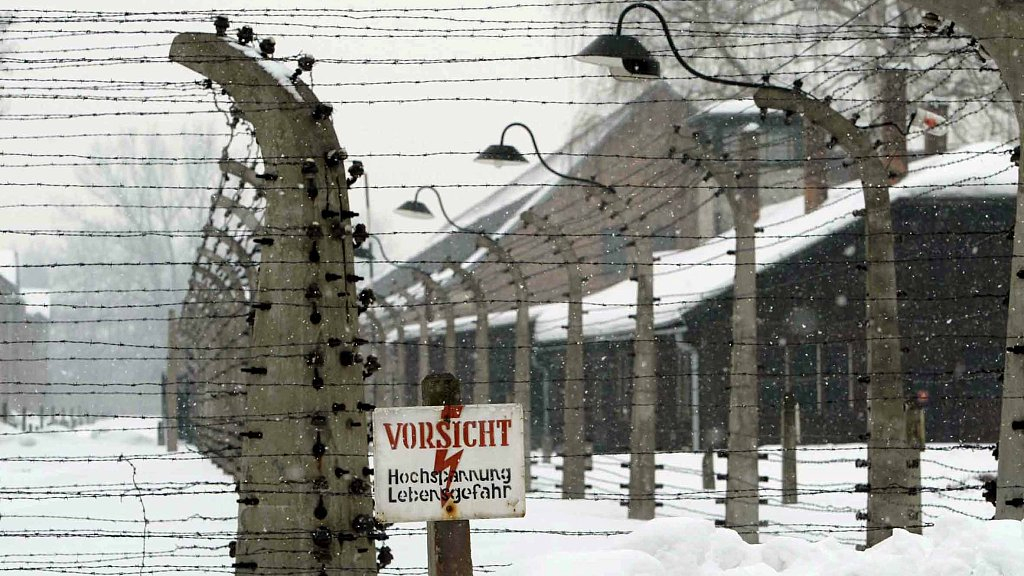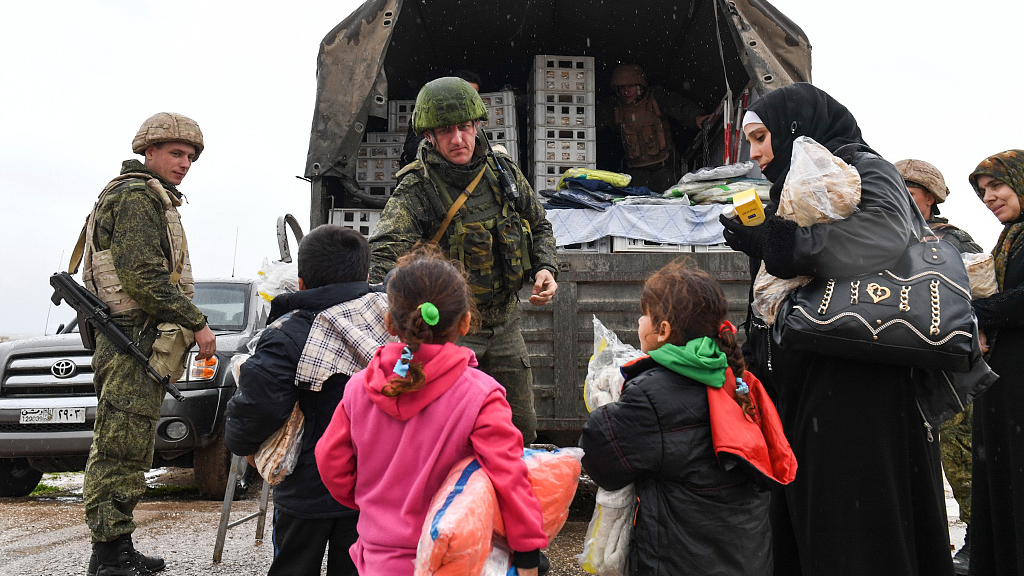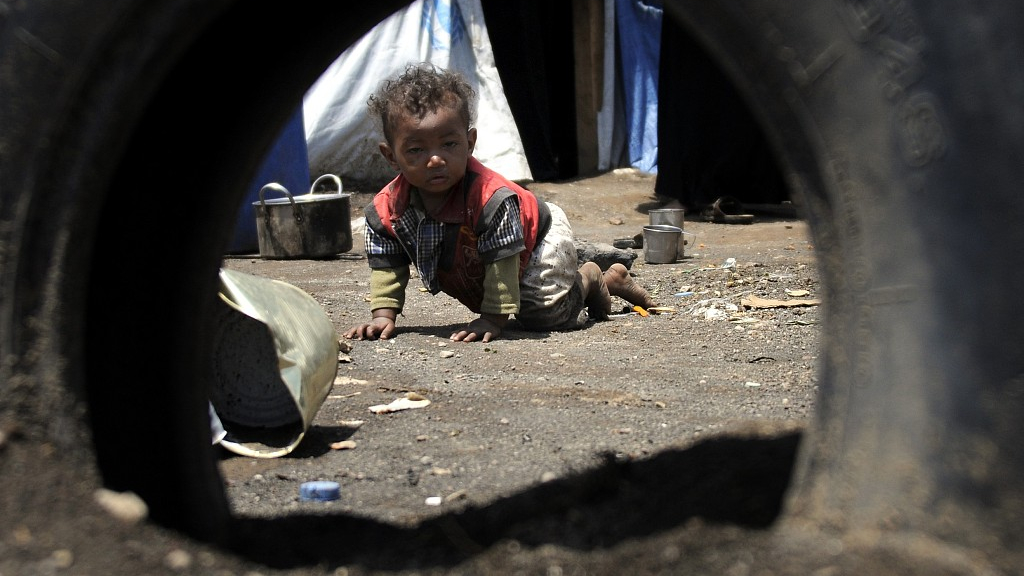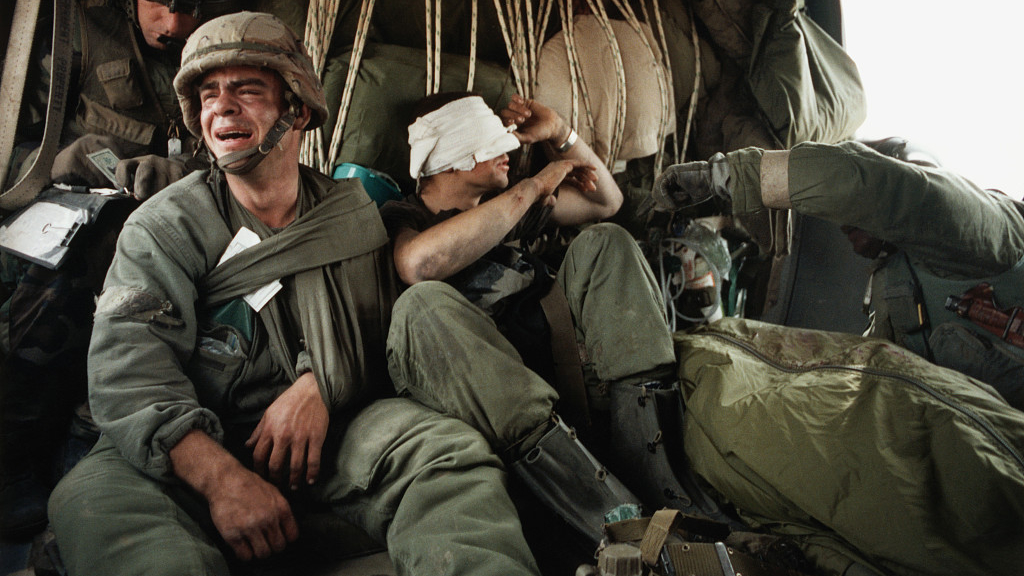
For 70 years, the Geneva Conventions have served as a lodestar for the development of international humanitarianism. The Conventions, also known as rules of war, describe how nations should treat the sick and wounded, captives, the shipwrecked and civilians during any armed conflict. Most importantly, it requires that civilians must never be targeted.
"Today's world is still facing various humanitarian crises, we need to pass on the ideas of humanity, fraternity and dedication to send love and hope to the innocent people in deep trouble," Chinese State Councilor and Foreign Minister Wang Yi said on Monday while attending a commemoration of the Geneva Conventions' 70th anniversary during the annual UN General Assembly at the UN headquarters in New York.
Even in the face of the most brutal circumstances, efforts must be made to adhere to the humane bottom line of respect for life, he added.
Indeed, the development of the Geneva Conventions and the humanitarian spirit that underlies it persevered while the world was involved in two of the most atrocious conflicts in modern history. The Conventions were arguably the most significant silver lining that emerged out of the Second World War that saw some 50 million civilians perish due to murder and starvation.
To this day, virtually all countries in the world have ratified the treaty in whole or with reservation. Major military powers in Europe, Asia and elsewhere have officers dedicated in teaching the principles of the convention to ground soldiers.

Auschwitz, the concentration camp where at least 1.6 million people were murdered, in Krakow, Poland, February 16, 2006. /VCG photo
Auschwitz, the concentration camp where at least 1.6 million people were murdered, in Krakow, Poland, February 16, 2006. /VCG photo
Henry Dunant and the four Geneva Conventions
In 1859, Swiss businessman Henry Dunant was traveling in Italy when he stumbled upon the aftermath of a brutal skirmish between Austrian and Franco-Piedmontese forces in the Second Italian War of Independence.
"Austrians and Allies trampling each other under foot, killing one another on piles of bleeding corpses," Dunant wrote in his memoir, "A Memory of Solferino." "No quarter is given; it is sheer butchery; a struggle between savage beasts, maddened with blood and fury."
Dunant's painfully honest account of the savagery during the Battle of Solferino echoed with military and civilian leaders across Europe. Five years after the book's publication, representatives of 12 states gathered in Geneva and signed the first international treaty regulating rules of conduct during an armed conflict. Despite its many ambiguities and inadequacies, the First Geneva Convention pushed the tide of humanitarianism.
Over the next 80 years, the Geneva Convention went through three major updates and expanded its coverage to more groups. Below are the major achievements of each version:
First Geneva Convention: contains 64 articles and provides protection for the wounded and sick, medical and religious personnel, medical units and transports in times of war; also recognized the distinctive emblems.
Second Geneva Convention: contains 63 articles and emphasizes shipwrecked military personnel at sea, such as hospital ships.
Third Geneva Convention: contains 143 articles and more precisely defines the status and conditions for prisoners of war (POW). This convention established the principle that POWs shall be released and repatriated without delay after cessation of active hostilities.
Fourth Geneva Convention: contains 159 articles and specifically addresses the protection of civilians and humanitarian relief in occupied territory.

A Russian soldier passes out food aid to Syrian civilians as they cross from rebel-held areas in Idlib province into regime-held territories on December 27, 2018, through the Abu Duhur crossing. /VCG photo
A Russian soldier passes out food aid to Syrian civilians as they cross from rebel-held areas in Idlib province into regime-held territories on December 27, 2018, through the Abu Duhur crossing. /VCG photo
New wars, new challenges
Since the adoption of the Geneva Conventions in 1949, the nature of armed conflict has evolved profoundly. The wars being fought today are more deadly, less visible and often involve non-state groups who do not fall into any traditional categories as defined in the treaty.
Today, more conflicts are fought internally between national government and armed groups representing various interests, while the Geneva Conventions of 1949 mainly addressed international armed conflicts. The ongoing Yemen Civil War is just one of the examples that demonstrate the difficulties in putting words into action.
In 2015, as rampant corruption, unemployment and terrorist attacks gripped Yemen, the Houthi movement which champions the nation's Shia Muslim minority took control of the nation's capital Sana'a. At the same time, a coalition led by Saudi Arabia and supported by the United States began a bombing campaign against the Houthi rebels in an attempt to restore the ousted government led by President Abdrabbuh Mansur Hadi.
Since then, the Saudi-led airstrikes have caused mass civilian casualties as they indiscriminately targeted various infrastructures in the Houthi-held territory, including bazaars, hospitals and schools. In 2016, a Saudi-led airstrike leveled a building where a funeral was held, instantly killing 155 people inside. In August last year, coalition forces dropped a cluster bomb on a school bus and killed 40 children onboard.

A Yemeni kid who have fled her home with her family from Sa'dah district due to clashes and airstrikes, is seen at Darwan refugee camp in Amran, Yemen on August 10, 2016. /VCG photo
A Yemeni kid who have fled her home with her family from Sa'dah district due to clashes and airstrikes, is seen at Darwan refugee camp in Amran, Yemen on August 10, 2016. /VCG photo
The UN has called the ongoing Yemen Civil War the worst humanitarian crisis in the world. Since the conflict began in 2015, intense fighting between government forces and Houthi rebels has resulted in the death of tens of thousands of civilians, according to UN statistics. Famine has threatened hundreds of thousands of lives including children while 24 million people, or 80 percent of the country's population, need assistance and protection.
In the preamble to the Geneva Conventions, nations proclaimed their "earnest wish to see peace prevail among peoples." They affirmed the importance of protecting the victims of armed conflicts, and of the Conventions being applied in all circumstances. If anything, the war in Yemen serves as a fresh and shameful reminder to the long distance ahead for humanity in truly realizing the noble ideas behind the Geneva Conventions. Moreover, it also points to the general loss of interest in the development of the treaty by different international stakeholders.
"There seems to be no willingness of states to update the Geneva Conventions. Earlier attempts to set even an agenda to discuss any non-legally binding matters related to international humanitarian law have failed," Dr. Matthias Vanhullebusch, the Chenxing Associate Professor at Shanghai Jiao Tong University's Koguan School of Law, told CGTN.

Ken Kozakiewicz (left) breaks down in an evacuation helicopter after hearing that his friend, the driver of his Bradley Fighting Vehicle, was killed in a "friendly fire" incident that he himself survived. Michael Tsangarakis (center) suffers severe burns from ammunition rounds that blew up inside the vehicle during the incident. All of the soldiers were exposed to depleted uranium as a result of the explosion. They and the body of the dead man are on their way to a MASH (Mobile Army Surgical Hospital). /VCG photo
Ken Kozakiewicz (left) breaks down in an evacuation helicopter after hearing that his friend, the driver of his Bradley Fighting Vehicle, was killed in a "friendly fire" incident that he himself survived. Michael Tsangarakis (center) suffers severe burns from ammunition rounds that blew up inside the vehicle during the incident. All of the soldiers were exposed to depleted uranium as a result of the explosion. They and the body of the dead man are on their way to a MASH (Mobile Army Surgical Hospital). /VCG photo
Since 2016, the world has witnessed the renewed interest in nationalism that is driving the world away from cooperation. The United States has pulled away from a major UN agreement on climate change while Britain is going through with its exit from the European Union. In the age where the urge of self-preservation driven by fear and ignorance has taken root, it is ever more important for the rest of us to make the case for multilateralism and humanitarianism.
In "A Memory of Solferino," Henry Dunant gives timeless advice for those of us who have grown accustomed to living in times of peace: "In this age when surprise plays so important a part, is it not possible that wars may arise, from one quarter or another, in the most sudden and unexpected fashion? And do not these considerations alone constitute more than adequate reason for taking precautions against surprise?"
(Cover photo: World War II, Liberation of Paris. Tanks of the 2nd Armored Division of General Leclerc on the place de la Concorede in Paris, France, August 25, 1944. /VCG Photo)